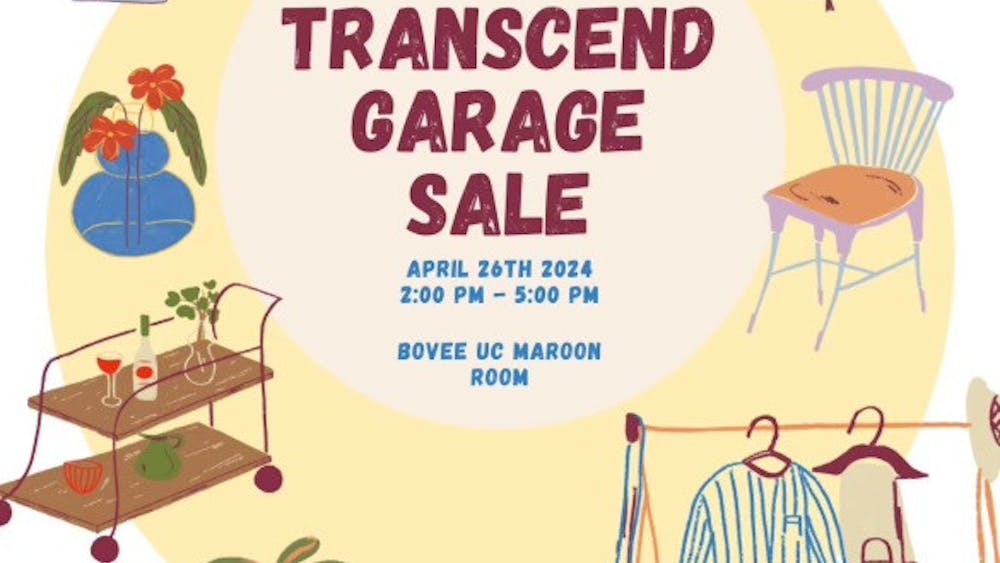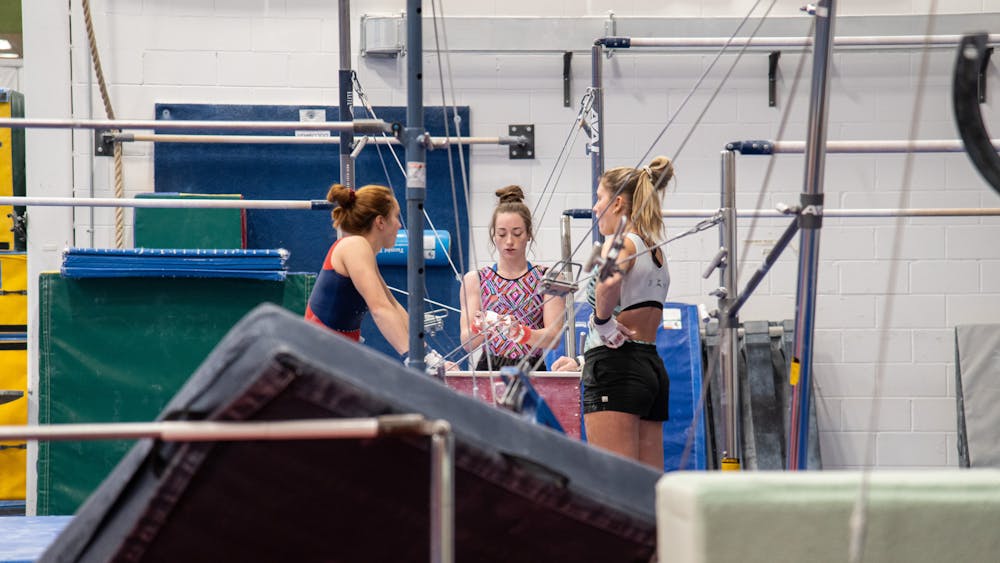Arbitrator's decision reveals details of Kubik reappoint decision
An arbitrator determined Central Michigan University did not violate its collective bargaining agreement with the Faculty Association when it denied reappointment of a fixed-term faculty member in the journalism department.
An arbitration is a hearing outside of court in which two parties with a dispute allow a third party — the arbitrator — to listen to both sides and make a decision.
Journalism faculty member Sara Kubik and the CMU Faculty Association, who represents tenure-track faculty, claimed when the journalism department voted to not reappoint Kubik in September 2014, the university was in violation of Article 14, paragraphs 4 and 20 of the collective bargaining agreement. Arbitration of Kubik's complaint began in April 2015.
The 39-page document, released July 13, details the arguments made by the union and the university. It also includes the statements made by witnesses and Arbitrator Joseph Girolamo.
Hearings were held March 21, April 22 and April 26 in which both CMU and the Faculty Association were allowed to call witnesses and make their cases.
Kubik requested time off and a tenure clock delay during her pregnancy in 2013 under the Family & Medical Leave Act. The delay was initially denied. After Kubik filed an internal civil rights complaint, the delay was granted in May 2014. Four months after receiving the delay, the department again voted not to reappoint her.
The Faculty Association claimed this was a violation of Kubik’s right to a delay for medical purposes in the union contract under Article 14. In that article, Paragraph 20 describes under what circumstances faculty may request delays in consideration of tenure, including birth of a child and childcare.
“The decision to not reappoint me beyond Spring 2016 effectively negates the extension as I will not have the opportunity to make use of the additional time to prove myself,” Kubik said to the arbitrator. “This action constitutes an act of bad faith with respect to the granting of the extension.”
The university countered by claiming in a statement to the arbitrator that the tenure clock extension did not guarantee reappointment.
“(Kubik) suggests that somewhere within the text of Article 14, Paragraph 20 — the section dealing with tenure extension — there is an obligation of the employer to maintain her employment (regardless of any reappointment process) through her tenure decision," said the university in the statement. "Nowhere in the mutually agreed upon terms and conditions preserved in Article 14, Paragraph 20 is there evidence of any obligation to the Employer, nor right upon which the grievant may reasonably rely, that the employment of a faculty member whose tenure decision has been extended is thereby guaranteed throughout that extension.”
Phillip Squattrito, co-chair of the Association Grievance Committee, was called as a witness by the Faculty Association. The arbitrator wrote in his decision that Squattrito did not cite language in the CBA that required reappointment.
“After careful consideration, your arbitrator concludes the employer view that decisions concerning tenure and reappointment are independent of each other has merit,” Girolamo wrote in his decision. “No evidence was submitted to support a finding that a tenure delay decision had affected the Reappointment process.”
The union also claimed the university violated Article 14, Paragraph 4 of the collective bargaining agreement, which states decisions on reappointment are to be made by the department colleagues of the faculty member. This was based on bylaws chosen by the department and approved by the provost.
Kubik claimed the journalism department violated its own bylaws. She said the department bases votes of reappointment on “progress” when looking at scholarly activity.
Two articles authored by Kubik were discussed: “Spotting Manipulation in Digital Photographs,” published in the Michigan Bar Journal in September 2014 and “Compliance Officers: When Patients Record Health Care Professionals,” published in Compliance Today in December 2014.
Statements by witnesses showed there was disagreement in the department over whether these were considered “academic” articles.
Journalism faculty members Alice Tait and Sean Baker, along with former journalism faculty members Johnny Sparks and John Hartman, are cited as having supported Kubik’s reappointment.
The Journalism Department voted 5-5 — with one abstaining member — against reappointing Kubik in September 2014. Faculty need a two-thirds vote in favor to be reappointed.
Professor Shelly Hinck, who was interim dean of the College of Communications and Fine Arts in 2014, also concluded the articles were not academic.
“Comments from the journalism department indicate that faculty perceive both of these publications to be in trade journals, rather than in academic journals,” Hinck said in a letter from November 2014, cited by the arbitrator. “I agree with that assessment.”
Kubik's articles were more “how-to” pieces, Hinck said, and did not involve original research.
Both Hinck and Provost Michael Gealt agreed to overturn the department’s previous vote to not reappoint Kubik in 2013. However, in 2014 Gealt sided with the journalism department.
“Given the apparent consistent lack of rigorous scholarly activity presented at the time you applied for reappointment, and my previous experience of reappointing you over similar concerns voiced by your regular faculty peers and Department Chair in 2013 concerning your productivity, I cannot recommend your reappointment to the regular faculty at Central Michigan University,” Gealt stated in a January 2015 letter cited by the arbitrator.
Girolamo again sided with the university on Article 14, Paragraph 4 of the collective bargaining agreement.
“In this case, the Department Personnel Committee and Chair concluded the Grievant’s scholarly and research activities did not demonstrate sufficient progress toward the final goal to warrant reappointment. The Dean and Provost properly utilized their 'independent judgment' in order to assess whether the Grievant met the standard for reappointment," Girolamo wrote. "The Association expressed some criticism in regard to the process followed by Provost Gealt. The Provost, after his initial decision, met with the Grievant and her Representative, listened to the concerns expressed in the meeting and issued his determination after the meeting. Your Arbitrator is unable to find fault with the Provost’s handling of this matter.”
In June 2015, Kubik filed a federal lawsuit in U.S. District Court against CMU and several staff members. The lawsuit is a separate case determining whether or not she was discriminated against by the University. Girolamo's decision has no effect on the ongoing federal lawsuit.




